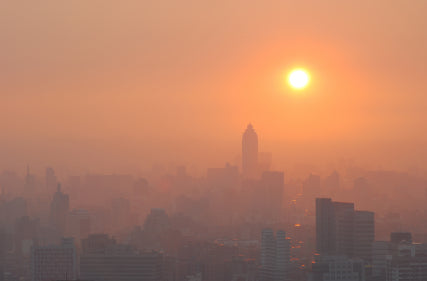- Home
- Shop
- Replacement Filters
- Commercial
- About Us
- Learn More
- Contact Us
- Clean Air News
- Home
- Shop +
- Replacement Filters
- Commercial +
- About Us +
- Learn More +
- Contact Us
- Clean Air News
- Sign in
- 1-888-852-8247 or 514-335-4277

The air pollution that worries experts the most consists of a toxic cocktail of fine and ultra-fine particles, chemicals and fumes.
Coarse particles are not a huge concern, since they are usually caught by the fine hairs in the nose and in the upper lungs. Fine and ultra-fine particles, on the other hand, can embed themselves into the lungs and they can make their way from the nostrils over neural pathways into the brain. Seems hard to believe? It works just like cocaine.
Is it all just coincidence? We shall know soon enough as the baby boomer generation is entering the phase of life where degenerative diseases typically emerge. They grew up before the Clean Air Act was passed and were exposed to more air pollution than any other generation before and after them.
It is a scary idea if you think about the high levels of smog and air pollution affecting people living in Chinese and Indian cities right now.
Researchers are notoriously careful about making a direct link between Alzheimer’s and air pollution. Prospective human studies are underway, but it will take decades to get the results. Animal studies seem pretty conclusive, but they are not enough in the world of science. Plus, there is hardly ever just one reason for degenerative disease - it is probably a multiple hit of conditions that will lead to the emergence or acceleration of dementia, Parkinson’s or Alzheimer’s.

Dementia is defined as “a chronic or persistent disorder of the mental processes caused by brain disease or injury and marked by memory disorders, personality changes, and impaired reasoning.”
It is often used as a term when it is pronounced enough to interfere with a person’s daily life.
It is also not clear how much air pollution a person’s brain can withstand before the effects can be seen.
Still, minimizing your exposure to air pollution seems like a good idea, no matter where you live. It just makes sense.
The best piece of advice we can give is to trust your nose. Experts often say that the nose can be a better spectrometer than any device on the market. If you smell anything chemical or irritating (think diesel or oil) you are in a polluted environment. Also, a person’s sense of smell is the first to go when degenerative diseases emerge, which is why many doctors use smell tests as a diagnostic tool.